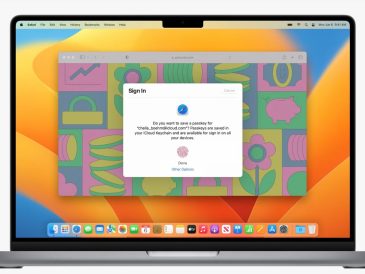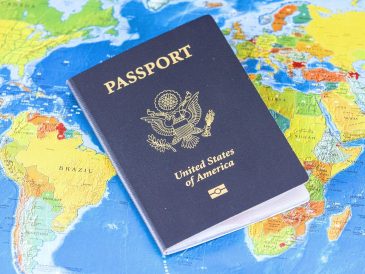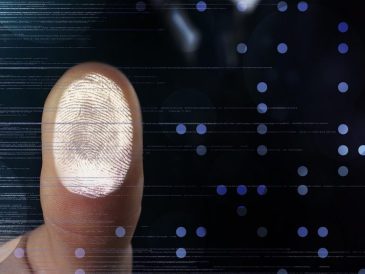Biometrics-enabled vehicles – autonomous and otherwise – continue to be introduced in various forms, and related new technologies developed, while autonomous vehicles could also present an opportunity for forensic biometrics.
San Francisco police, for example, have used camera footage from autonomous vehicles in investigations. Mazda and Mercedes-Benz are designing models with ever-more sophisticated biometrics software to customize the driver’s experience, and a Genesis automobile with face and fingerprint biometrics has reached the market. Apple has patented a ‘Car Key’ breath-analysis feature.
Just for good measure, a designer has created a replica of the Lexus 2054 featured in the movie Minority Report based on original plans for biometric security systems, as explained by Car Scoops.
Use of self-driving car footage by San Francisco Police alarms privacy advocates
A San Francisco Police Department training document provided to tech publication Motherboard indicates an interest in seeing footage captured autonomous vehicle cameras as an aid in investigations.
Most of the training document is devoted to procedures for stopping a vehicle when needed, but there are hints at how valuable the agency thinks access to the feeds would be.
In fact, officials have already tried to access video from Alphabet’s Waymo and General Motors’ Cruise autonomous hardware and software that can be found readily on the roads.
According to the document, officers involved in “investigations have already done this several times.”
Waymo staff told Motherboard that they require law enforcement agencies to follow valid processes in requesting information and will “challenge, limit or reject requests that do not have a valid legal basis or are overly broad.”
GM officials reportedly told the publication that they “share footage and other information when we are served with a valid warrant or subpoena, and we may voluntarily share information if public safety is at risk.”
Adam Schwartz, a senior staff attorney at the Electronic Frontier Foundation (EFF), told Motherboard, “This is very concerning.” Schwartz adds that, “The holistic outcome of these combined moving and fixed networks is a threat that is greater than the sum of its parts.
Together, they can “turn our lives into open books.”
Chris Gilliard, a visiting research fellow at the Harvard Kennedy School Shorenstein Center, says, “Law enforcement agencies already have access to automated license plate readers, geofence warrants, Ring doorbell footage, as well as the ability to purchase location data. This practice will extend the reach of an already pervasive web of surveillance.”
Mercedes-Benz, Mazda, Genesis models feature driver biometrics
Mercedes-Benz’s 2022 C-Class sedan in India and Mazda’s CX-60 SUV were both launched with biometrics to access driver profiles that customize their seat operation, along with a somewhat broader implementation from Genesis.
The Mercedes C-Class in India will sport a fingerprint scanner to allow access a driver profile, according to The India Print. That profile, including preferred settings for seat positioning, climate control, ambient lighting, and radio favorites can be shared among other Mercedes-Benz vehicles.
Mazda’s CX-60 will incorporate facial recognition to register a driver’s profile. Auto Trader New Zealand says Mazda is the first manufacturer to use face biometrics for this purpose.
The profile for some CX-60s will dictate settings for the steering wheel and seat, heads-up display, door mirrors, and air conditioning. It can adapt more than 250 personalization settings for six profiles.
Auto Trader New Zealand reports that this is not a standard option. It will be an add-on for the vehicle’s comfort package or with the Homura or Takumi trim lines.
The global market for biometrics in automobiles was forecast to reach $1.56 billion by 2025, according to a report by Industry ARC. A litany of biometric options including facial recognition, fingerprint, iris and voice biometrics have already been integrated by manufacturers around the world.
Genesis Motor America has launched its GV60, introducing the Face Connect system to allow motorists to lock and unlock the vehicle with facial recognition.
The face biometrics system uses near-infrared (NIR) technology, and in addition to vehicle locking also controls personalization settings by activating a driver profile.
Fingerprint biometrics are used for ignition, allowing full operation of the car without the use of a physical key. A smart device can also store a digital key.
The 2023 GV60 starts at a manufacturer’s suggested retail price of $58,890.
Apple Car Key breathalyzer patented in the U.S.
Apple’s Car Key that is based on biometric authentication received a U.S. patent for a breathalyzer feature, according to 9 to 5 Mac.
The news site says the patent document outlines a Car Key feature that can communicate with a breathalyzer. Blood alcohol levels below a threshold level would enable use of the vehicle.
Credit: www.biometricupdate.com





